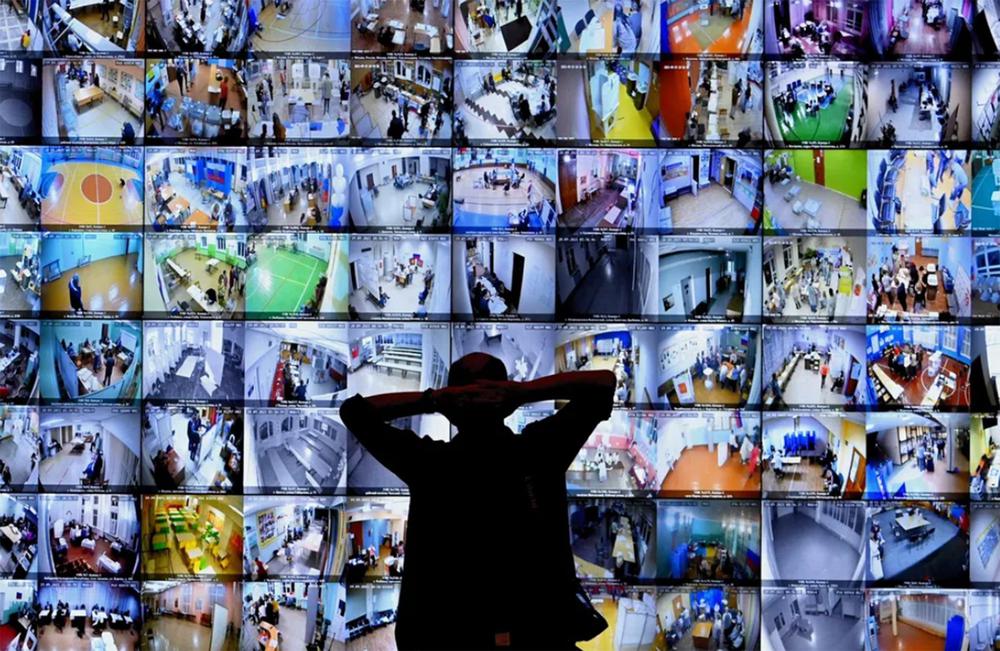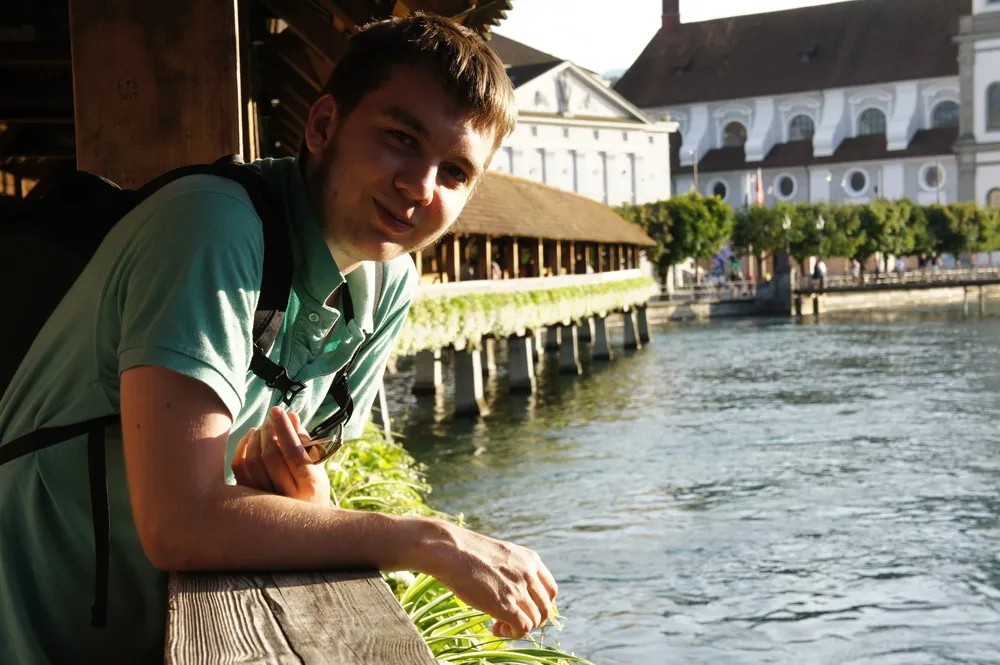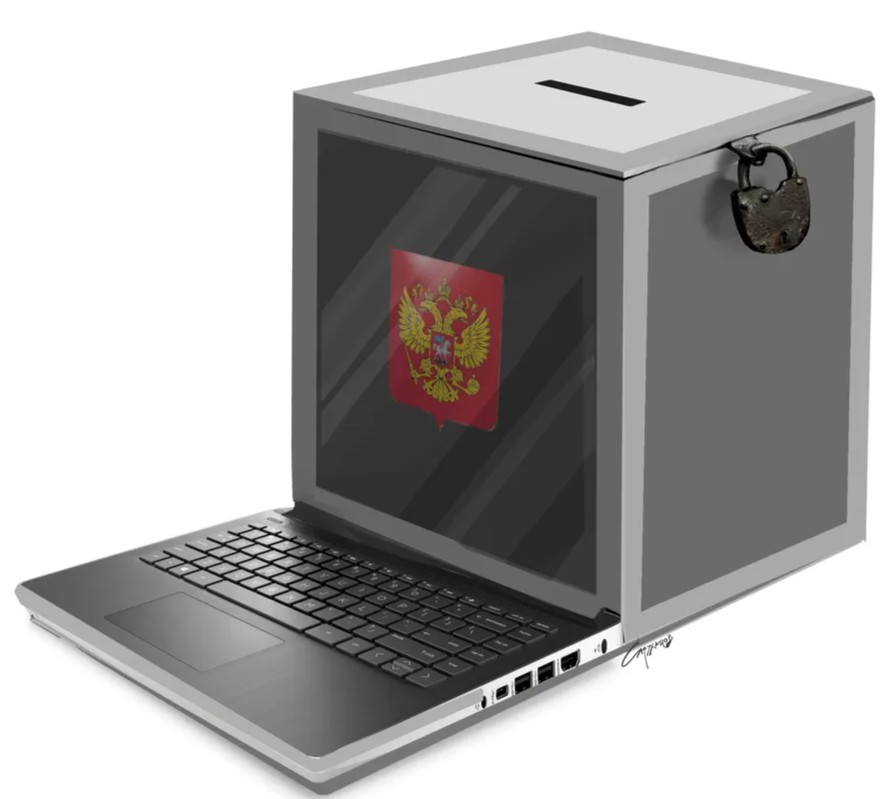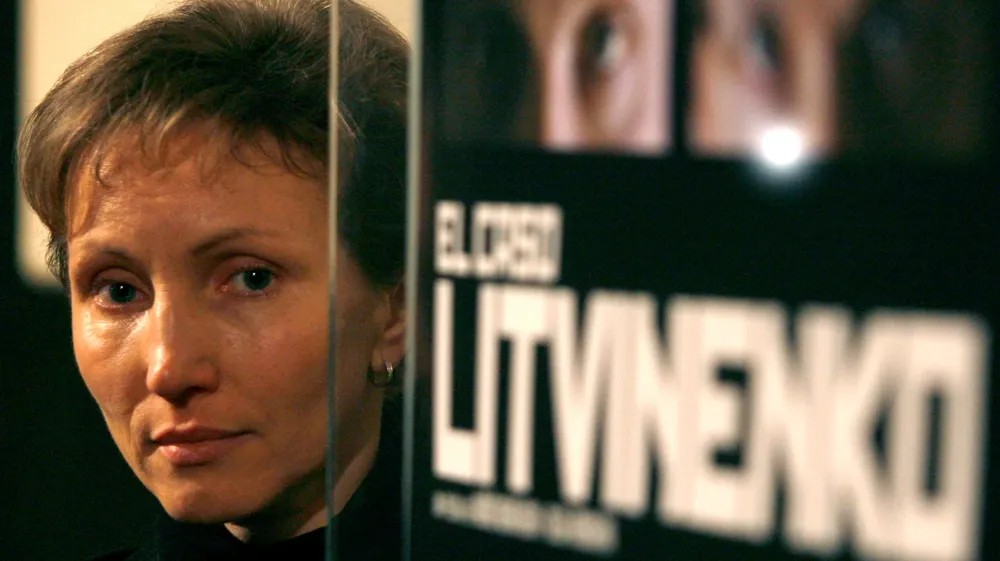
Photo: RIA Novosti
Here what’s in store for you this week:
- Novaya lifts the lid on Gazprom’s role in Europe’s current fuel crisis — is it a happy coincidence for Russia or a deliberate act of blackmail?
- We examine the farce of E-voting in the recent State Duma elections that flipped several Moscow seats in United Russia’s favor;
- Then, we publish parts of an exclusive interview with the widow of murdered Russian spy Alexander Litvinenko, shortly after ECHR ruled Russia responsible for his death;
- Plus, Russian pensions are a mess. Resident economist Dmitriy Prokofiev crunches the numbers.
Want to get the full story? Click the links below for full-length articles in Russian.
E-Election Farce, Explained
This week we keep focus on the fallout from the rigged parliamentary election in Russia. Our reporters bring several great stories illustrating it. After three days of voting across Russia for the 450 seats in the State Duma, Novaya takes a look at the absolute farce that was newly launched electronic voting — and the success of Russian authoritarian tech. Meanwhile, we visited remote Karelia to see how and why the older generations voted for their preferred candidates — elderly voters remain a key group supporting Putin's rule. And, Leonid Gozman from Russia's Union of Right Forces offers his condolences to the Kremlin given the mass disillusionment that this latest electoral farce has fostered.
E-VOTING FRAUD. Opposition candidates won several Moscow districts over United Russia in the State Duma elections earlier this month — that is, until the electronic votes were counted. Suddenly, United Russia-supported candidates steamed ahead. Novaya speaks to Yandex programmer Petr Zhizhin about how fraudulent E-voting could have been executed. "I was outraged by the situation. I decided that I needed to analyze what had happened," he tells Novaya. "If you go to observer.mos.ru, you can simply download the SQL database, unpack and see three tables: blocks, decrypted ballots, and transactions." He proceeds to tell us that he followed the decryption process and that not all the online votes had been processed. «If only 70 percent of the votes have been decrypted, then what is in the remaining 30? Maybe they are all for the opposition?» he asks.

Petr Zhizhin
ZHIZHIN MANAGED TO IDENTIFY SEVERAL GAPS IN THE RUSSIAN E-VOTING SYSTEM THAT MAKES IT VULNERABLE TO VOTE-RIGGING. First, the government used a hollow blockchain system with all nodes and decryption codes in possession of the officials. Second, the electronic voter ID database turned out to be messy and incomplete, which prevents the verification of the complete authenticity of e-votes and allows mass e-ballot stuffing by voter bots.
'I didn't trust the system, but until they started falsifying, I wasn't interested in it. But then I realized that the system is so opaque that it takes special technical knowledge to understand how it functions. It was too difficult to analyze everything,' Zhizhin tells us.
KARELIA. Our special correspondents Tatiana Vasilchuk and Victoria Odissonova visited remote villages across Karelia in Arctic Russia over election season to establish which factors prompted residents to vote in one way or another. Ruling United Russia won in the region, although we encountered public frustration with the government everywhere we went. In poorly-constructed polling booths, the local electorate stated their reasons. Some wanted to vote "against everyone," while others voted for Zhirinovsky's Liberal Democratic Party (LDPR) purely because they recognized him from television. Various ecological issues are essential to the local communities, which have been plagued by the blazes sweeping Russia this summer. And, many opt for the Party of Pensioners as there are few – if any – young people living nearby.
MANY ARE JUST TOO SKEPTICAL THEIR VOTES WILL BE COUNTED. 'And who to vote for, girls?' asks a local woman named Valentina rhetorically.
'They choose for us. Everything has been decided without us. Are we naive firstborns? All votes have already been counted; who needs it — they already won. Now they make the noise that our votes matter. But when they get to their parliamentary seats — will they do many things for the people? The main thing for them is to get through. We are the periphery for them. Aborigines!'

Illustration by Petr Sarukhanov
ENVIRONMENTAL DEGRADATION AND WORSENING FOREST FIRES BECAME A TIPPING POINT FOR SOME VOTERS. Local pensioner Valeriy recollects how his son spent the whole summer putting up with burning forests — with lack of resources and amid government neglect. It flipped Valeriy's vote — away from the support for Putin's United Russia.
"They completely took over the power. It seems to me that in Russia, on the one hand, life is getting better. But on the other hand, there is a lot of disorder, especially in our periphery. I have been living here for 53 years, and as the water was muddy and dirty, it remained. It flows in our taps, dark and dirty, undrinkable. We don't even wash with this water," Valeriy says.
CONDOLENCES TO KREMLIN. Meanwhile, we publish a scathing letter of condolences to the Kremlin from a Russian prominent opposition politician. Leonid Gozman outlines why the electoral farce will further injure the ruling United Russia party and how victories can be more damning than defeats. "After the recent 'elections,' the oppositional segment of society concentrated in the capitals does not only not believe the announced results, but remains convinced that it has been robbed, and even more so than in 2011," he writes. Society has never been more disaffected.
'What have the Russian authorities now proved to themselves and to all of us? They can come up with more and more new ways of falsification, that they can draw any numbers without giving a damn about everything. Not to say that there's anything new about it. And what is the result? The new composition of the Duma will not be more obedient and manageable than the previous one. Simply because it is impossible to be more manageable than the outgoing Duma and its predecessors,' Gozman writes.
Gazprom Role in EU’s Energy Crisis, Explained
Gas prices have reached an all-time high of $1,000 this week. Europe believes that this is essentially a form of blackmail and that Russian energy state giant Gazprom is the culprit. A prominent Russian gas analyst Sergey Kapitonov from the Skolkovo Moscow School of Management, writes his take in Novaya op-ed this week.
Поддержите
нашу работу!
Нажимая кнопку «Стать соучастником»,
я принимаю условия и подтверждаю свое гражданство РФ
Если у вас есть вопросы, пишите [email protected] или звоните:
+7 (929) 612-03-68
THERE ARE MANY FRAGMENTS IN THE MOSAIC OF THE PRICE SPIKE ON THE EUROPEAN GAS MARKET THIS YEAR. HOWEVER, GAZPROM DEFINITELY MADE THE SITUATION WORSE by running their supply streams at the lowest level that current contracts allow. "Many influential European analysts, journalists, and politicians are unanimous in their opinion that the primary culprit of the gas market shortage is Russia's Gazprom," notes Kapitonov. "Against the background of such prices in the first half of 2021, Gazprom's profit increased 22 times, records from the second half of the year show that this is far from the limit."
BLACKMAILING EUROPE. Recently, European Parliament MEPs signed a letter to the European Commission demanding to investigate the current activities of Gazprom. From their point of view, Gazprom is deliberately manipulating the supply process and essentially blackmailing Europe by restricting gas supplies before the launch of Nord Stream 2. They are possibly hoping for some concessions and a speedy — if not immediate — launch to the project. Gazprom has refused to guarantee additional supply volumes "despite available information that Gazprom has sufficient production capacity," according to the 42 MEP signatories.

Photo: RIA Novosti
WHILE EUROPE IS RELIANT ON RUSSIA IN SOME WAYS, RUSSIA IS ALSO PLAYING A DANGEROUS GAME. "Any complication of relations in the gas sector with Europe is a huge risk, given the fact that Nord Stream 2 has not yet been launched," says Kapitonov. "In the next three years, Gazprom will have to extend contracts for tens of billions of cubic meters with its old clients in the West."
GAZPROM’S WANING RESPECT IN EUROPE. 'This year, ahead of the launch of Nord Stream 2, the last symbol of the ending era of unproblematic gas cooperation between Russia and Europe, Gazprom had every opportunity to show its power and flexibility to European customers. This hasn't happened,' Kapitonov writes. 'There is still time before the cold weather arrives; storage facilities in Europe can still be filled at least to a more or less comfortable level. Even if economic factors are against it, it is still essential for Gazprom to show Europe that the company can reduce tension on the market. Without such a demonstration, the attitude of European politicians to Russian gas could worsen even more. Indeed, with Angela Merkel leaving the post of German Chancellor, there will be no heavyweight allies capable of defending the need to preserve the strategic East-West gas axis in Europe. And then a time of unpredictability will come for Russian gas pipelines in Europe.'
BACKSTORY. Gazprom announced at the beginning of September that it had laid the last pipe of the Nord Stream 2 natural gas pipeline, which runs under the Baltic Sea to supply Germany with gas — thereby cutting out Ukraine through which an existing pipeline runs. Gazprom CEO Alexei Miller recently said that the first gas flows could begin before the end of 2021, given that on the Russian side, they feel fully prepared. Germany's four-month period to certify Nord Stream 2 commenced on September 8. The Nord Stream 2 pipeline has always been more of a geopolitical project for the Kremlin than a solid business venture, designed to punish Ukraine for its sharp pro-EU turn.
Read all about it, here.
Interview with Litvinenko’s Widow
On September 21, the European Court of Human Rights (ECHR) ruled that Russia was responsible for the assassination of former Russian spy Alexander Litvinenko, who died in London after drinking a cup of tea poisoned with radioactive polonium. This week we publish an exclusive interview with Litvinenko’s widow, Marina Litvinenko.
DAMNING COURT RULING. “The death of Litvinenko was the result of a planned and complex operation, including the acquisition of a rare deadly poison, organizing a trip for Lugovoy and Kovtun, and numerous attempts to inject the poison”, the ruling by Europe’s top human rights court says. This leaves zero room for ambiguity or interpretation. The court established, “beyond reasonable doubt,” that the assassination had been carried out by Andrei Lugovoi and Dmitry Kovtun. “The complaint was originally filed in 2007, a year after Sasha's death,” says Marina, noting that it serendipitously fell around the same time that a third suspected GRU officer thought to have been involved in the Skripals’ case was named.

Marina Litvinenko. Photo: ERA
THE CLASSIC ‘RUSSOPHOBIA’ DEFENSE. As usual, when the Russian state is unable to produce any sufficient evidence proving its proclaimed innocence, it resorts to bland, sweeping accusations of ‘Russiphobia’. That is, of course they shouldn’t take responsibility for their actions and it is all part of a big global conspiracy born out of a deep-seated hatred for the nation. “I remember what a hysteria was in 2018 because of the Skripals,” recalls Marina, saying that the official line claimed the goal was to blacken the country. “How many times was [suspected assassin Andrey] Lugovoy given the chance to explain all his actions and movements, but he did not cite a single fact refuting the UK investigation, except for the words, ‘"this is slander’, ‘this is Russophobia’, ‘this is politically motivated’.
FINANCIAL PENALTY. Russia must pay Litvinenko's widow 100,000 euros in compensation for non-pecuniary damage and 22,500 euros in connection with legal costs. Whether they will pay remains to be seen, but Marina is not optimistic. “Even if the Russian authorities deprive me of compensation, they will not deprive the whole world of the opportunity to see and read the decision of the European Court,” she says. “My son and I will somehow survive the absence of monetary compensation.”
BACKSTORY. Poison is something of a Kremlin calling card. About a year ago, Russian oppositionist Alexei Navalny was rushed to a German hospital to be treated after coming into contact with a Novichok nerve agent. Numerous Kremlin critics and Russian dissidents have fallen ill or been killed by poison. In 2004, during Putin's first term in office, the late investigative journalist Anna Politkovskaya said she believed she was poisoned after drinking a cup of tea on a domestic flight in Russia. Opposition activist Vladimir Kara-Murza says that he was poisoned twice. And of course there's the infamous case of Sergei and Yulia Skripal being poisoned in early 2018 — again by Novichok nerve agents. The Kremlin has repeatedly issued denials about involvement in assassinations.
Read all about it, here.
Bonus Round
- RUSSIA’S TROUBLED PENSION SYSTEM. Our most read story this week was written by our resident economist, Dmitry Prokofiev, outlining the complete scam that is the Russian pensions system. In his article, he outlines a recent, very public conflict between the Russian Central Bank’s deputy chairman Sergei Shvetsov and his superior, Central Bank head Elvira Nabiullina. Shvetsov publicly said it was ”too late” for the state to help pensioners, who should have built up a “good pension packet” themselves across their own lives — making the state in no way responsible for ensuring their livelihoods. Nabiullina hastily backtracked, saying that she “regrets the extremely unfortunate wording” — acknowledging that of course many who are currently retired had “no opportunity” to save for old age under the Soviet system. However, it seems that Shvetsov was closer to the truth. Next year, in 2022, the average size of the old-age pension looks set to be 18,521 rubles ($254) per month. In 2023 — 19,477 rubles ($267), and in 2024 — 20,469 rubles ($281). “You can't live on either 18,000 or 20,000 rubles,” notes Prokofiev. He then proceeds to calculate that even with unusually low interest on any pension contributions, each individual should be receiving 55,512 rubles ($762) — that is, more than twice as much as the “official” pension. Ever-increasing debt and poverty are a massive burden on the lives of Russians, especially the elderly population. Several failed attempts at reforming the country’s pension system add up to the misery. Putin’s state of the nation address at the beginning of last year swore to eliminate poverty in the provinces, as starving pensioners would line up for giveaways of expired foods. Some 21 million Russians live below the poverty line, with the state-defined minimum wage equating to 10,800 roubles (about $165) a month. Read all about it, here.